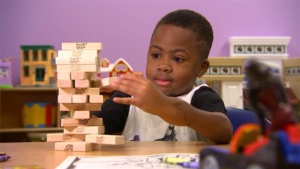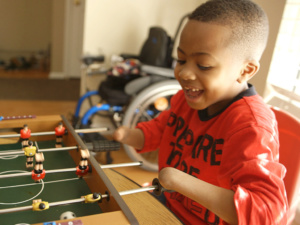Days after the transplant Zion Harvey could move his fingers. Now he can feed and dress himself with his new hands. After suffering from an infection that caused him to lose both his hands and feet, Zion Harvey became the first child to receive a double hand transplant in 2015 and 18 months later, the eight-year-old is able to use his new hands to write, eat and get dressed.

Doctors monitoring Harvey say his ability to control both hands provides a “proof-of-principle” that hand surgeries in children can be successful. The results have also exceeded the pre-operation expectations, the surgeons said.
While hand transplants aren’t rare – the first was completed in 1998; followed by a double transplant in 2000 – Harvey’s transplant marks a test case for whether the procedure can be more widely considered.
A medical study published in The Lancet Child and Adolescent journal, describes how the eight-year-old has progressed following the surgery. “Hand transplantation in a child can be surgically, medically, and functionally successful under carefully considered circumstances,” the research paper reads.

The ten hour and 40-minute procedure at Philadelphia’s children’s hospital involved two years of preparation from a medical team as well as four teams of surgeons working on both Harvey and the donor.
Days after the surgery was completed, Harvey was able to begin moving the fingers on his new hands. This was possible as his muscles were connected to the tendons of the existing hands. “Within weeks, the patient adapted to the presence of the new hands, adjusting his perception of limb length and personal space around the hands,” the research paper adds.
As time has progressed, Harvey’s abilities with the hands have increased with occupational therapy – including using video game controllers, finger exercises and puppets. A year on from the surgery he was able to use scissors and crayons as well as swinging a baseball bat and regaining the touch sensation. Doctors noted he “often expressed pride in his accomplishments during therapy and in his functional gains”.
But things haven’t all been smooth for Harvey. As with any transplant – he previously had a kidney transplant following the infection – the body has to adapt. There have been minor infections, distress caused from being in hospital for seven weeks after the surgery and a period of reduced mobility while his body adjusted to the hands.
The success of the transplant, according to the researchers behind it, was due to intense medical planning. As Harvey continues to grow and age, the medical team behind the surgery will continue to monitor his progress. There’s also no guarantee his body will continue to cooperate with his new hands due to a long-term risk of chronic rejection.
“Whether or not having functional hand transplants for a time-limited period of life warrants incurring the risks is likely to be an individual ethical choice; we would recommend that both the patient and parents should be able to make the decision to have the procedure,” the researchers add.
Kindly follow us on twitter:@AfricanVoice2










